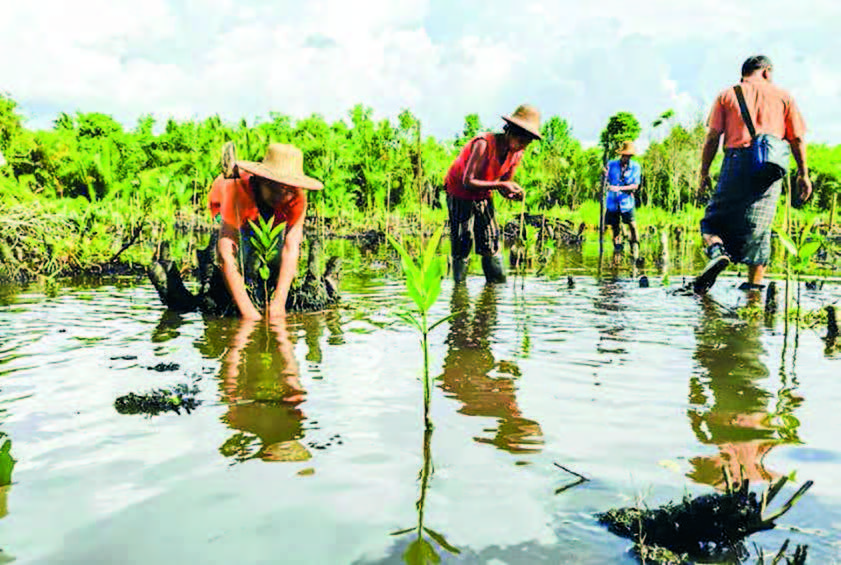ACCORDING to UN-Habitat, the organization has planted 150,000 mangrove trees in Pyapon and Bogale townships in the Ayeyawady Region, with the participation of local communities.
By the end of the 2024 rainy season, 75 acres of mangrove trees, comprising over 80,000 trees, were planted in Pyapon Township, while 50 acres, with more than 60,000 trees, were planted in Bogale Township. The planting was supported by the European Union in Myanmar and carried out by UN-Habitat, with community involvement, according to U Win Naing, the local coordinator.
“We want to preserve the area, so we planted the trees in a community forest. The locals are the primary ones responsible for conservation. We provide them with training. In the past, before these forests were depleted, the locals were the only ones who benefited from them. Now, we are doing this so they can take responsibility and enjoy the benefits. These activities are not enough, so we will continue to expand and plant more,” said U Win Naing.
Mangrove forests help develop fish resources, support livelihoods, and mitigate natural disasters. Despite challenges posed by local people, such as expanding farms, cutting firewood, and burning charcoal, authorities are continuously providing locals with training and technology, and are working together with the community to solve problems related to long-term conservation and mixed forest management. — ASH/TH


